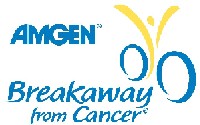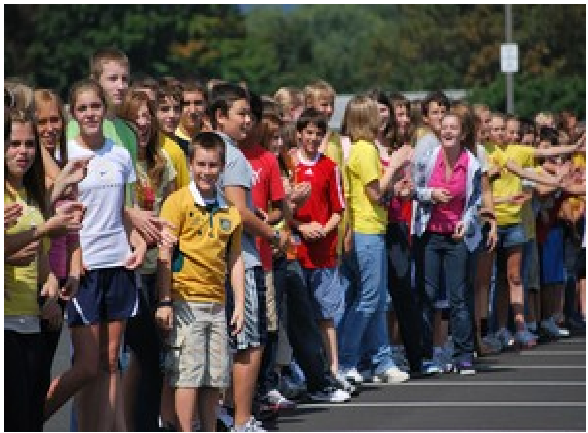HOME
ABOUT SPOKES OF HOPE
SPOKES EVENTS
TRAINING WHEELS
PINK PEDAL POWER
SCHEDULE
TWITTER
FACEBOOK
BLOG
CONTACT US
RESOURCES
PHOTOS
APPAREL
SPONSORS & DONATIONS



|

Spokes of Hope: Training Wheels
Studies suggest that the human brain grows and learns the most between the ages of 4 and 14. Therefore Spokes of Hope is taking its cancer education program to elementary and middle school students across the United States.
The goal is to:
• Define cancer in terms the children can understand and relate
• Point out that cancer is not contagious (remove the stigma associated with cancer)
• Having cancer does not necessarily mean that it will kill you (remove the fear associated with cancer)
• What treatment is and what treatment does (remove the mystery surrounding cancer)
• How some cancers are preventable (educate and empower)
• How to relate to someone diagnosed with cancer (make them advocates)
• Promote healthy lifestyle choices
How Spokes of Hope will deliver this message:
Representatives of Spokes of Hope (“Spokes-Persons”) will ride their bikes to the schools and give presentations. The Spokes-Persons will be cyclists who have gone through and survived treatment of cancer and be able to share their stories of strength and survival with the students.
They will engage the students by asking questions and have the students stand in response to the following questions:
• How many of you have someone in your family that has been diagnosed with cancer?
• How many of you know someone from church or school who has been diagnosed with cancer?
• How many of you think that cancer will kill you if you get it?
• How many of you think you have the power to possibly prevent cancer?
In age appropriate terms, explain how cells are the building blocks in the body, and cells all have jobs to do. How changes in the cells growth changes them so they can no longer do the jobs they were supposed to do. This causes problems.
Explain the different types of treatments (chemotherapy, surgery and radiation) and how they affect not only the cancer cells but other fast growing cells in the body. That’s why many people being treated for cancer have no hair or look pale and sick. Explain that this is temporary and that the hair and appearances come back. Have the cancer survivors stand up and show how strong and alive they are.
Explain how to interact with people with cancer. That they want to be treated normally. They don’t want pity or special treatment. Even though energy levels may be affected and they will be tired, that does not mean that they are dying. They may see cancer patients wearing isolation masks, but that is not because they are contagious, it is because they are trying to make sure that they stay healthy and don’t catch germs from other people.
Many cancers are preventable or easily detectable and there are decisions that the students can make to prevent cancer from coming into their lives.
• Know your body. What is normal for you? Know every bump and freckle. Feel comfortable talking to your parents about your body and asking questions about what is normal.
• Eat a well balanced diet. High fiber and low fat, low sugar diets have been shown to help prevent some cancers.
• Wear Sunscreen! Most skin cancers are reported in adults who had sun burns in their childhood years.
• Exercise regularly. Exercise doesn’t have to mean working out in the gym. Playing is exercise!
• DON’T SMOKE! EVER! Tobacco is the leading cause of many cancers and very preventable. Don’t start and you won’t have to deal with the pain of trying to quit or having many tobacco related cancers.
Empower the Students to talk to their families about what they have learned. Tell them to help their families make healthy lifestyle choices.
|